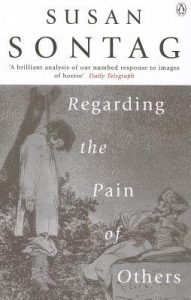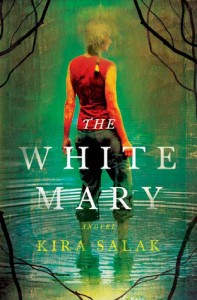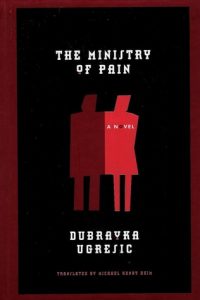Nikolai Gogol portrays the rigid social and governmental institutions in Diary of a Madman and Other Stories. By setting characters up to functioning inside the system to the point of absurdity or to function in opposition to the system, the reader can see the societal norms that may otherwise be invisible.
In the story “How Ivan Ivanovich Quarreled with Ivan Nikiforovich,” Gogol presents two landowner friends. They quarrel over the sale of a gun and ultimately Ivan N. calls Ivan I. a goose. The dispute seems silly to the reader, but Ivan I. takes it to such heart that the action of the story unfolds from this slight insult. Because Ivan N. asks, “‘What’s so slanderous about it and why are you waving your arms about?’” the reader can feel justified in the assumption that Ivan I. is overreacting and even laugh at the image of this “goose” flapping his arms. The two Ivans bring complaints against each other in court and eventually in a deliciously funny scene Ivan I.’s pig eats Ivan N.’s paperwork. Ivan I. is declared guilty of stealing the document (a capital offense) because he owns the pig. At first it seems as though the mayor who is delivering this news is quite serious, he later settles for the idea that the pig be killed and asks for a share in any sausages that might result which makes the punishment seem arbitrary and highlights the relationship the characters have with the rigid mores around them. The characters live within strict societal rules and are willing to enforce them, but they also circumvent them when necessary. This brings about an “us against them” mentality even when the characters (mayors, judges) ostensibly would be a part of the institution and therefore a part of “them.”
Gogol also pokes fun at the rigid expectations of his society in “The Madman.” In this story, the humor in the rigidity lies in how internalized the social norms are. It rapidly becomes obvious that the protagonist Axenty is insane but he never strays from the accepted social manners of his day. Axenty is in love with the boss’s daughter and becomes convinced that a dog is interfering with his prospects, so he knocks on the door of the house and demands of the maid that he be admitted to talk with the dog. If he were to chase the dog down the street or abuse it or even call the humane society, Axenty would be living in a different society. But in his society, propriety demands that one present themselves to the maid and request an audience in order to settle a dispute. Axenty’s madness also seeks redress in the reading the dog’s letters. The humor lies in the fact that this man has so internalized his culture, he is attempting to use proper etiquette when dealing with a dog.
In “The Overcoat,” Akaky is a poor government worker who is content in the rote mediocrity of his life as a copyist. He scrapes together enough cash to have a new overcoat made. The new overcoat is an object of great pride for him and his coworkers throw a party and invite him and his overcoat to the party. On the way home, the overcoat is stolen and Akaky’s quest for redress begins. At first he works within the system as he meekly asks for audiences to explain his situation but the bureaucracy shuffles him along without satisfactory result. Eventually Akaky stands up for himself at the urging of his fellow clerks and demands to see the Superintendent, but he is thwarted because the man turns the questioning around on Akaky. The clerks in his office give him advice on how to work around the systemic constraints and Akaky is eventually persuaded to seek the help of an Important Person who again abuses Akaky because he has not followed proper procedure. Akaky dies of an illness brought on by not having a proper coat and he begins haunting the area where his coat was stolen. Only when freed from his earthly constraints is Akaky able to sift through the rigidity of social and bureaucratic norms and he steals the Important Person’s overcoat.
Gogol portrays a world where both internal and external constraints are very rigid. There are some characters (like the clerks in Akaky’s office) who are able to work around the system, but the protagonists aren’t. Watching these characters unable to break free from their norms can be frustrating, but by portraying both the humor and tragedy of these characters, Gogol is able to speak to the condition of the society he was writing about. Writing about existing normative constraints can be difficult because readers not of the society may not understand the norms of that society and readers from within that society do not always recognize those norms as something worth talking about. Every society has norms and every character must act within them or thwart them. By writing about characters who are prisoners to their norms to the point of absurdity, Gogol is able to create a commentary on his society that speaks both to his countrymen and to outsiders.
In my own writing I am very interested in the way societies function and how that affects individual behavior. What I can see from Gogol is that without commenting on the norms the reader may not understand them. Gogol either sets up some opposition force to the norms (Akaky trying to talk to the Important Person) or has a character follow the norms to the letter (Axenty seeking proper introductions to a dog or holding a pig accountable for a crime).
If this review made you want to read the book, pick up a copy of Diary of a Madman and Other Stories from Bookshop.org. Your purchase keeps indie booksellers in business and I receive a commission.

 I tried to forget about the graves as we flew to Dubrovnik and entered the beautiful, walled old Town. For a couple of days I was a right good tourist exploring the sights and spending money. But I kept looking for signs of the war. The guidebook said the only evidence we would see of the bombing of Dubrovnik was the new red tile roofs. It wasn’t until walked the walls that I saw that most of the roofs were the bright red of new tile. Almost no building was left untouched. I wanted to think that there were other reasons for some of the new roofs, but there were so many of them…I was curious and I wanted to know more, but I didn’t know who to ask and I didn’t want to be rude. I wanted to see the place for more than its war experiences, but I couldn’t stop thinking about it.
I tried to forget about the graves as we flew to Dubrovnik and entered the beautiful, walled old Town. For a couple of days I was a right good tourist exploring the sights and spending money. But I kept looking for signs of the war. The guidebook said the only evidence we would see of the bombing of Dubrovnik was the new red tile roofs. It wasn’t until walked the walls that I saw that most of the roofs were the bright red of new tile. Almost no building was left untouched. I wanted to think that there were other reasons for some of the new roofs, but there were so many of them…I was curious and I wanted to know more, but I didn’t know who to ask and I didn’t want to be rude. I wanted to see the place for more than its war experiences, but I couldn’t stop thinking about it. I read The White Mary by Kira Salak on a flight from Seattle to Paris at the start of my first trip abroad in four years. The story of a journalist on a quest for her idol who the world thinks is dead but she thinks might be alive in the deep jungles of Papua New Guinea seemed like an auspicious start to my own (much tamer) adventure: a family trip to Croatia.
I read The White Mary by Kira Salak on a flight from Seattle to Paris at the start of my first trip abroad in four years. The story of a journalist on a quest for her idol who the world thinks is dead but she thinks might be alive in the deep jungles of Papua New Guinea seemed like an auspicious start to my own (much tamer) adventure: a family trip to Croatia.
 We’re coming back from Croatia today, so here, at long last, is a post on Ugrešić.
We’re coming back from Croatia today, so here, at long last, is a post on Ugrešić.